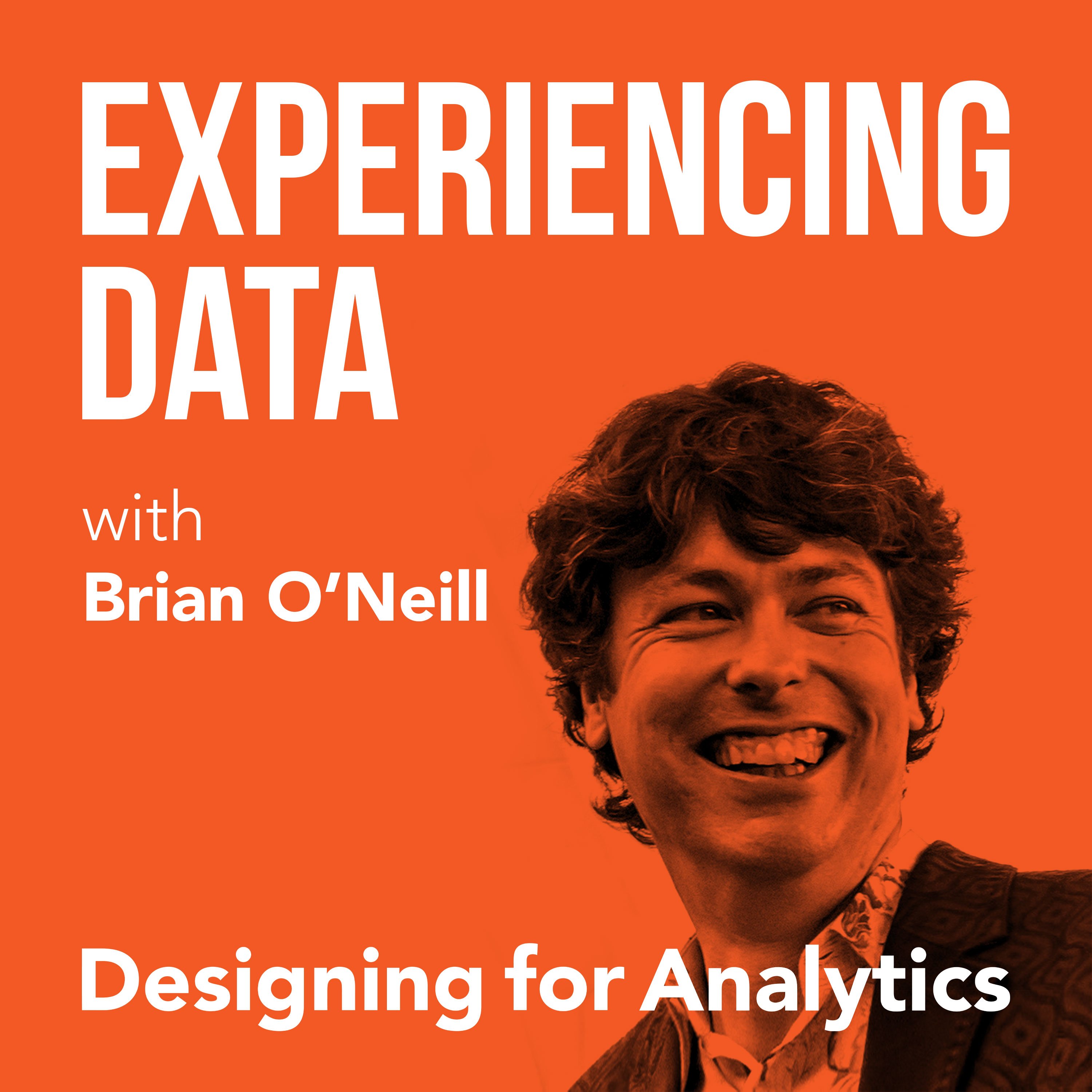132 - Leveraging Behavioral Science to Increase Data Product Adoption with Klara Lindner
Description
In this conversation with Klara Lindner, Service Designer at diconium data, we explore how behavioral science and UX can be used to increase adoption of data products. Klara describes how she went from having a highly technical career as an electrical engineer and being the founder of a solar startup to her current role in service design for data products. Klara shares powerful insights into the value of user research and human-centered design, including one which stopped me in my tracks during this episode: how the people making data products and evangelizing data-driven decision making aren’t actually following their own advice when it comes to designing their data products. Klara and I also explore some easy user research techniques that data professionals can use, and discuss who should ultimately be responsible for user adoption of data products. Lastly, Klara gives us a peek at her upcoming December 19th, 2023 webinar with the The Data Product Leadership Community (DPLC) where she will be going deeper on two frameworks from psychology and behavioral science that teams can use to increase adoption of data products. Klara is also a founding member of the DPLC and was one of—if not the very first—design/UX professionals to join.
Highlights/ Skip to:
I introduce Klara, and she explains the role of Service Design to our audience (00:49)
Klara explains how she realized she’s been doing design work longer than she thought by reflecting on the company she founded, Mobisol (02:09)
How Klara balances the desire to design great dashboards with the mission of helping end users (06:15)
Klara describes the psychology behind user research and her upcoming talk on December 19th at The Data Product Leadership Community (08:32)
What data product teams can do as a starting point to begin implementing user research principles (10:52)
Klara gives a powerful example of the type of insight and value even basic user research can provide (12:49)
Klara and I discuss a key revelation when it comes to designing data products for users, which is the irony that even developers use intuition as well as quantitative data when building (16:43)
What adjustments Klara had to make in her thinking when moving from a highly technical background to doing human-centered design (21:08)
Klara describes the two frameworks for driving adoption that she’ll be sharing in her talk at the DPLC on December 19th (24:23)
An example of how understanding and addressing adoption blockers is important for product and design teams (30:44)
How Klara has seen her teams adopt a new way of thinking about product & service design (32:55)
Klara gives her take on the Jobs to be Done framework, which she will also be sharing in her talk at the DPLC on December 19th (35:26)
Klara’s advice to teams that are looking to build products around generative AI (39:28)
Where listeners can connect with Klara to learn more (41:37)
Links
diconium data: http://www.diconium.com/
LinkedIn: https://www.linkedin.com/in/klaralindner/
Personal Website: https://magic-investigations.com/
Hear Klara speak on Dec 19, 2023 at 10am ET here: https://designingforanalytics.com/community/
More Episodes
Jeremy Forman joins us to open up about the hurdles– and successes that come with building data products for pharmaceutical companies. Although he’s new to Pfizer, Jeremy has years of experience leading data teams at organizations like Seagen and the Bill and Melinda Gates Foundation. He...
Published 11/14/24
The relationship between AI and ethics is both developing and delicate. On one hand, the GenAI advancements to date are impressive. On the other, extreme care needs to be taken as this tech continues to quickly become more commonplace in our lives. In today’s episode, Ovetta Sampson and I examine...
Published 10/29/24


